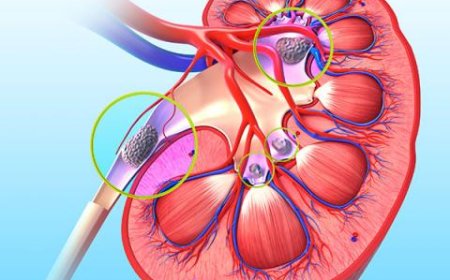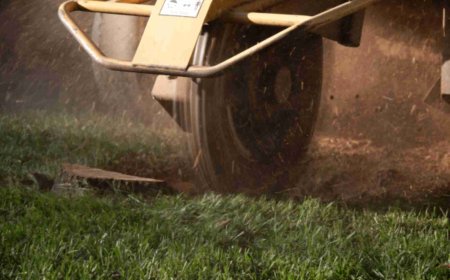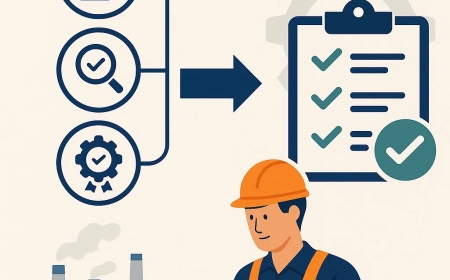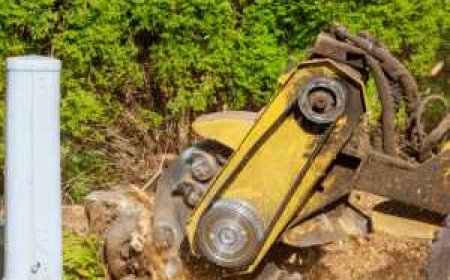The Complete Guide to Stump Grinding: Why It Matters and How It Works
Stump grinding is more than just yard cleanup—it’s about reclaiming your space, eliminating hazards, and keeping your landscape healthy and beautiful. Whether you’ve recently removed a tree or just got tired of mowing around an old stump, grinding it down is the smart move. It’s quick, clean, and a lot more affordable than you might think—especially when done by pros.

Stump grinding is the process of removing a tree stump by mechanically grinding it down using a specialized machine. Unlike full stump removal, which pulls the entire root system out of the ground, stump grinding shaves the stump into mulch below the surface levelleaving your yard flat and ready for a new purpose.
Why Tree Stumps Need to Go
Leftover stumps arent just eyesorestheyre problems waiting to happen. From tripping hazards and pest nests to ruining your curb appeal, ignoring that stubborn stump is a mistake many homeowners regret.
Stump Grinding vs. Stump Removal
What's the Difference?
-
Stump Grinding uses a rotating cutting disk to chip away the wood until its ground below soil level.
-
Stump Removal involves digging the entire stump and root ball out of the ground, often requiring excavation equipment.
Which Option Is Best for You?
Choose grinding if you want:
-
A less expensive and quicker solution
-
Minimal yard damage
-
To re-landscape or plant grass
Choose removal if:
-
You plan to build a foundation or driveway in that spot
-
You want to eliminate all roots entirely
Benefits of Stump Grinding
Improves Aesthetics
Lets be honestno one likes an ugly stump sticking out of an otherwise clean yard. Grinding it down brings instant improvement to your lawns appearance.
Prevents Pest Infestations
Old stumps attract termites, carpenter ants, beetles, and other pests that love decaying woodand could spread to nearby healthy trees or even your house.
Eliminates Safety Hazards
Stumps are trip hazards for kids, pets, and anyone mowing the lawn. Grinding it out keeps your yard safe.
Stops Tree Regrowth
If you leave a stump, theres a good chance the tree will try to regrow. Stump grinding destroys the core, preventing suckers and shoots from reappearing.
How the Stump Grinding Process Works
Equipment Used in Grinding
Stump grinders come in various sizeswalk-behind models for small stumps and large industrial machines for massive root systems. Most feature a high-speed rotating disk with sharp teeth that grind the stump into wood chips.
Step-by-Step Process
-
Evaluate the Stump Size, location, and wood hardness are assessed.
-
Clear the Area Rocks and debris are removed for safety.
-
Position the Grinder The blade is lowered just above the stump.
-
Begin Grinding The machine moves back and forth across the stump.
-
Grind Below Grade Typically 412 inches below ground level.
How Deep Does the Grinder Go?
Most stump grinders go 612 inches deep, which is enough to remove the visible stump and top of the root system.
Cost of Stump Grinding
Pricing Factors
-
Diameter of the stump
-
Type of tree (hardwoods are tougher)
-
Depth of grinding
-
Accessibility (tight spaces cost more)
-
Number of stumps
Average Cost Estimates
-
Small stumps (under 12 inches): $60$120
-
Medium stumps (1324 inches): $100$200
-
Large stumps (25+ inches): $200$400+
Is It Worth the Price?
Absolutely. The value it adds in safety, aesthetics, and avoiding pest problems makes it a smart investmentespecially compared to leaving a stump to rot for years.
DIY Stump Grinding vs. Hiring a Pro
The Challenges of Doing It Yourself
-
Rental grinders are heavy and hard to use
-
Risk of injury or property damage
-
Poor results without training
-
Youre responsible for clean-up and disposal
Why Professionals Make a Difference
-
Fast and efficient
-
Proper safety practices
-
Cleanup often included
-
No hidden rental fees or fuel surcharges
What to Do After Stump Grinding
Removing the Wood Chips
Youll be left with a big pile of mulch. You can:
-
Use it in your garden beds
-
Spread it across your lawn
-
Bag and dispose of it
Filling the Hole
After grinding, theres a shallow depression left behind. Fill it with topsoil or compost, then reseed or sod for a smooth lawn.
Replanting or Re-landscaping
Want to plant in the same area? Its best to wait a year to let the remaining roots break down and the soil settle naturally.
Environmental Considerations
Eco-Friendly Disposal of Mulch
Instead of sending it to the landfill, you can reuse wood chips as mulch around shrubs and trees. It suppresses weeds and retains moisturenatures recycled blanket.
Soil Health and Recovery
Stump grinding leaves behind organic matter. This can improve soil health over time, as long as the area is properly backfilled and managed.
Choosing the Right Stump Grinding Service
Questions to Ask
-
Are you licensed and insured?
-
Do you include cleanup?
-
How deep do you grind?
-
Can I keep the mulch?
-
Do you charge per stump or per inch?
Qualifications to Look For
-
Positive customer reviews
-
Certified arborists on staff
-
Modern, well-maintained equipment
-
Transparent pricing
Conclusion
Stump grinding is more than just yard cleanupits about reclaiming your space, eliminating hazards, and keeping your landscape healthy and beautiful. Whether youve recently removed a tree or just got tired of mowing around an old stump, grinding it down is the smart move. Its quick, clean, and a lot more affordable than you might thinkespecially when done by pros.
FAQs
How long does stump grinding take?
Most stumps can be ground in 30 minutes to 2 hours, depending on size and hardness.
Will the tree grow back after grinding?
Unlikely, especially if the grinding is deep enough to destroy the roots and the stump core.
Is stump grinding safe for nearby structures?
Yes, professionals take care to avoid underground pipes, foundations, and irrigation systems.
Can I plant a new tree in the same spot?
You can, but its better to wait at least 612 months to allow the soil to settle and roots to decay.
What happens to the roots after grinding?
They remain underground and naturally decompose over time, improving soil quality in the process.






























